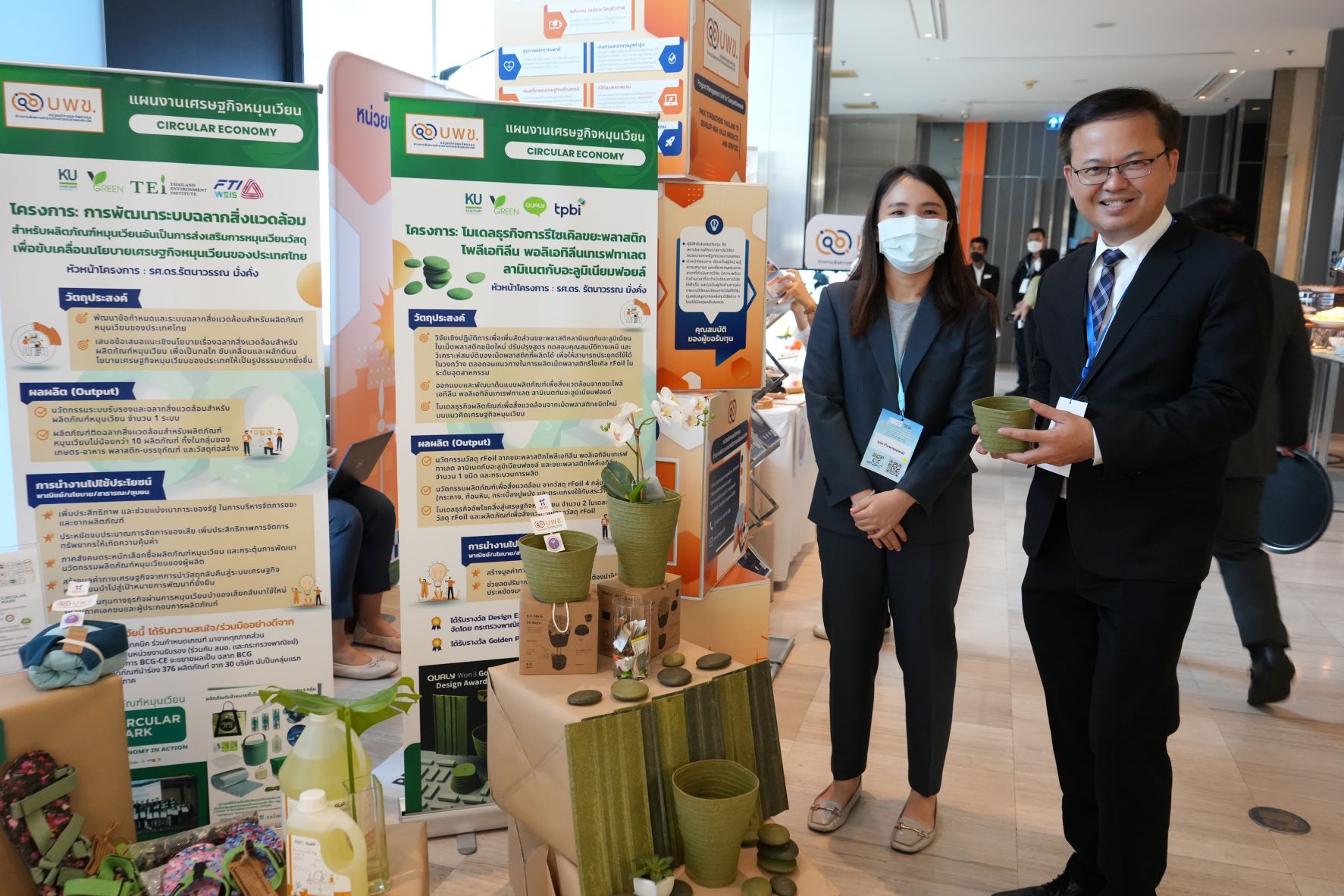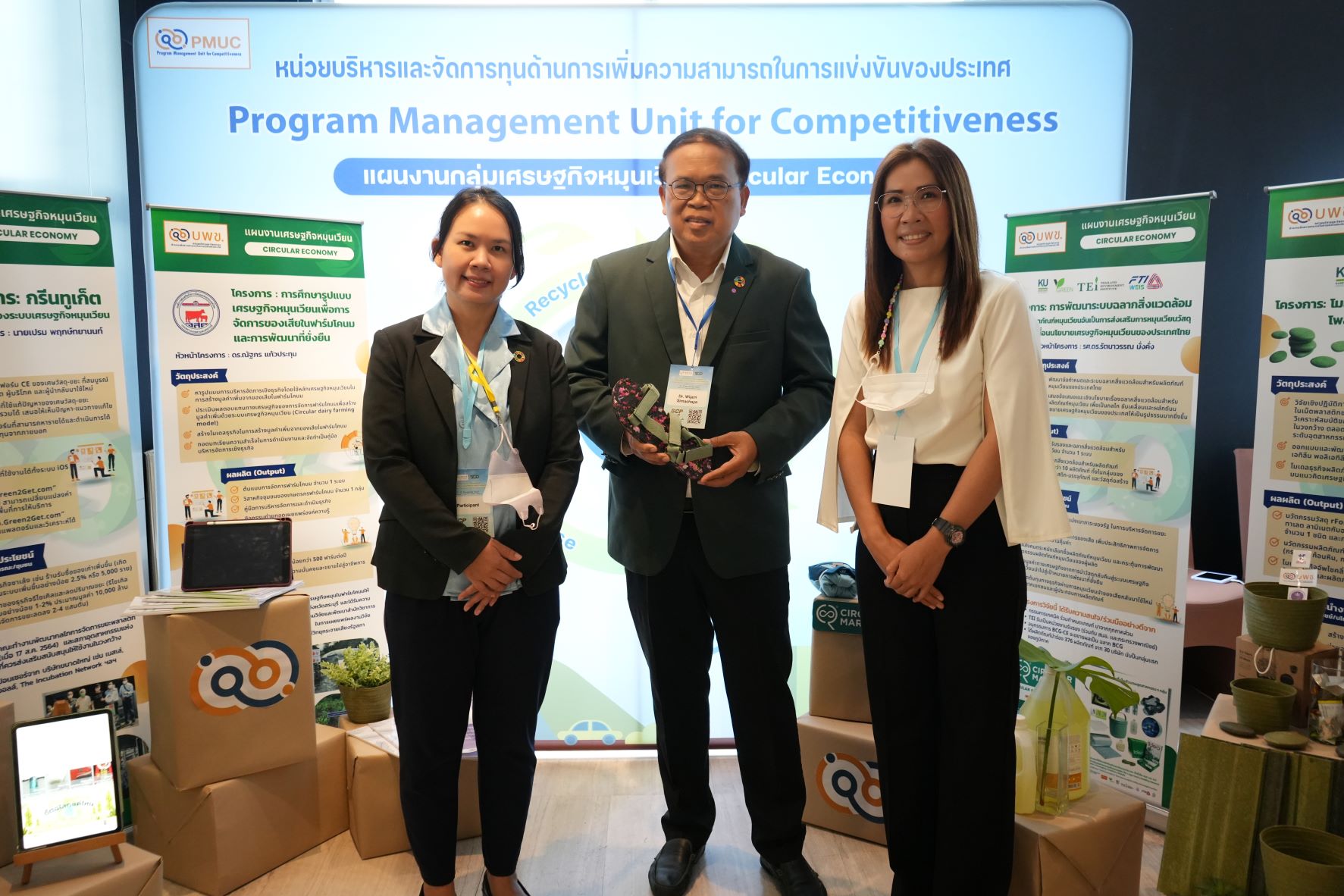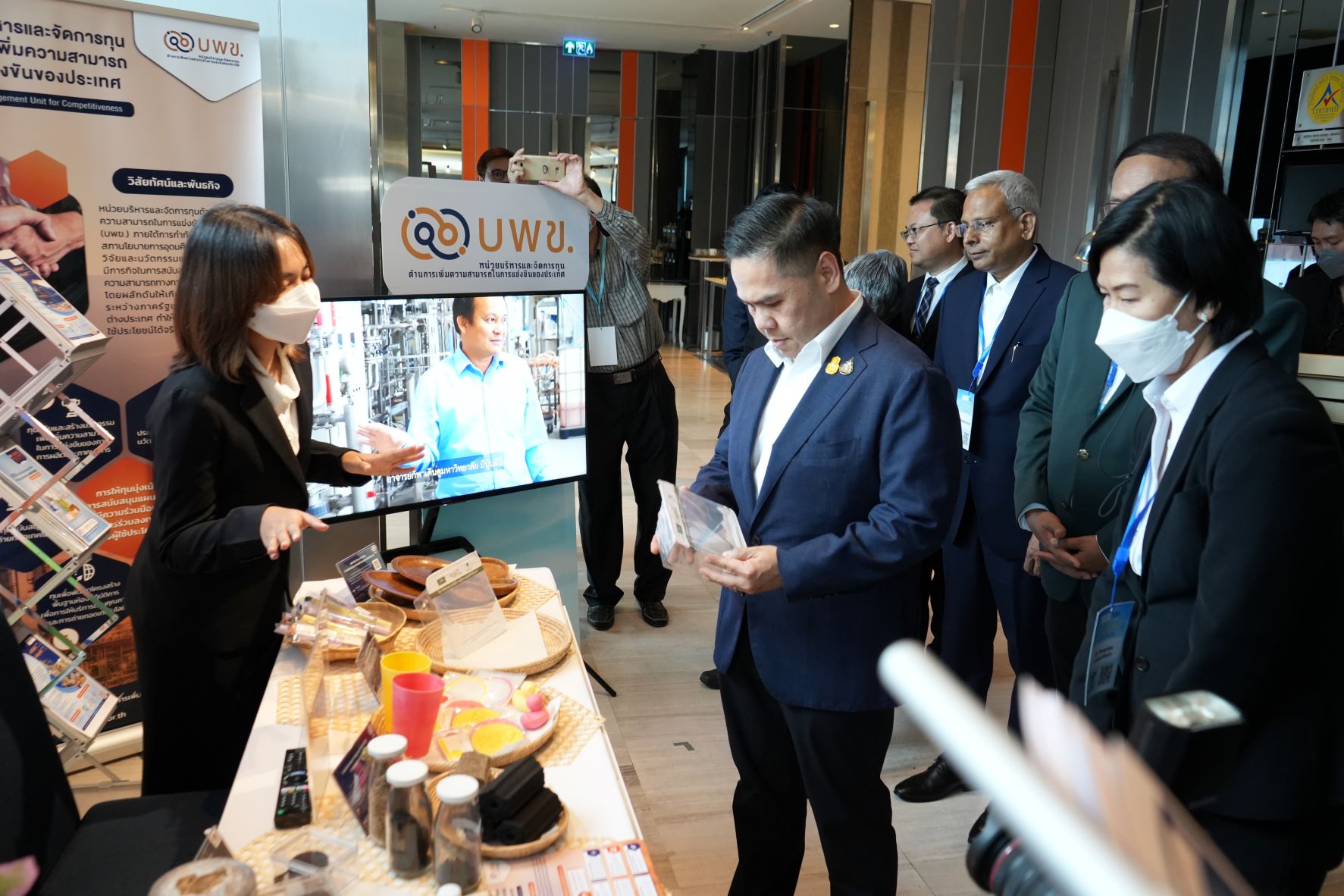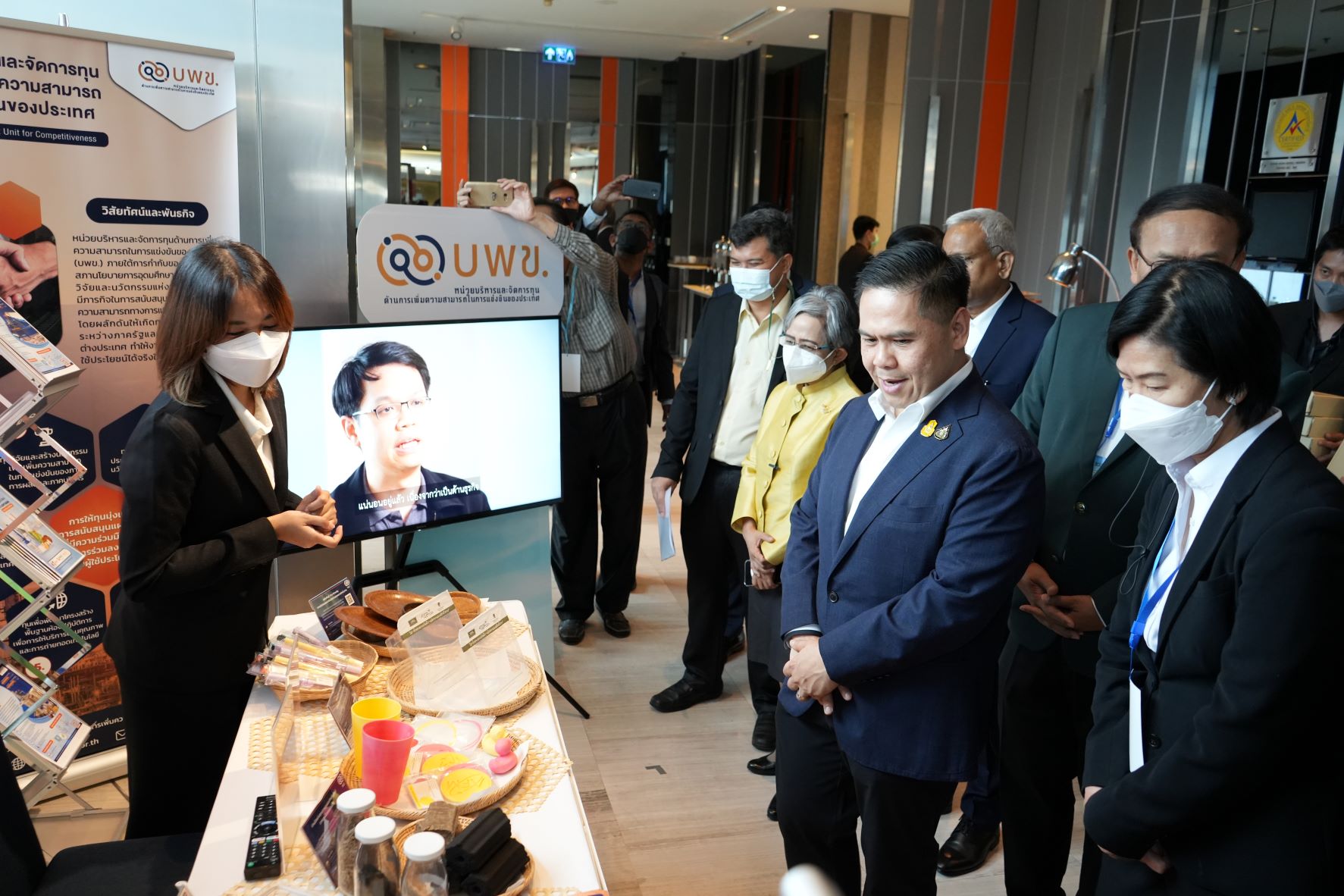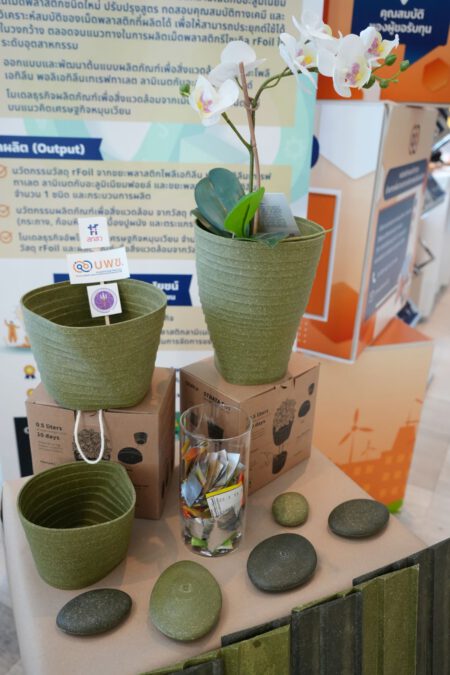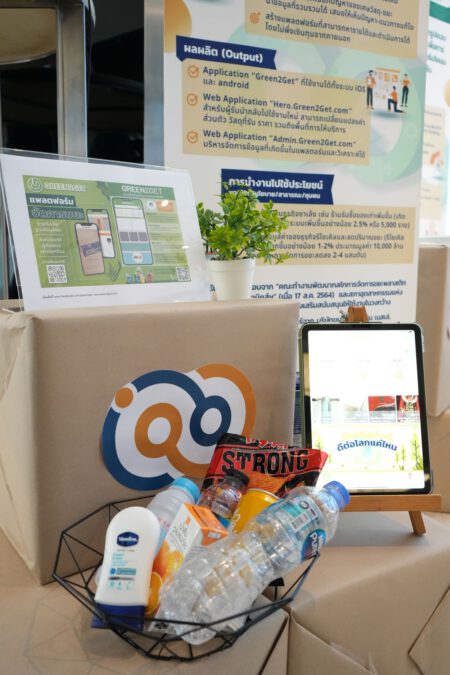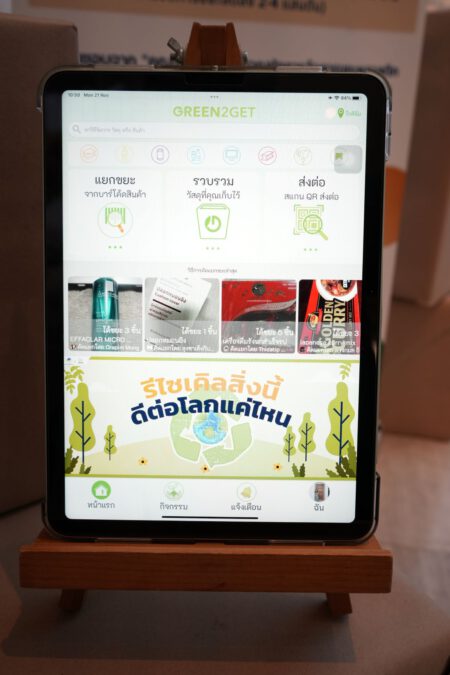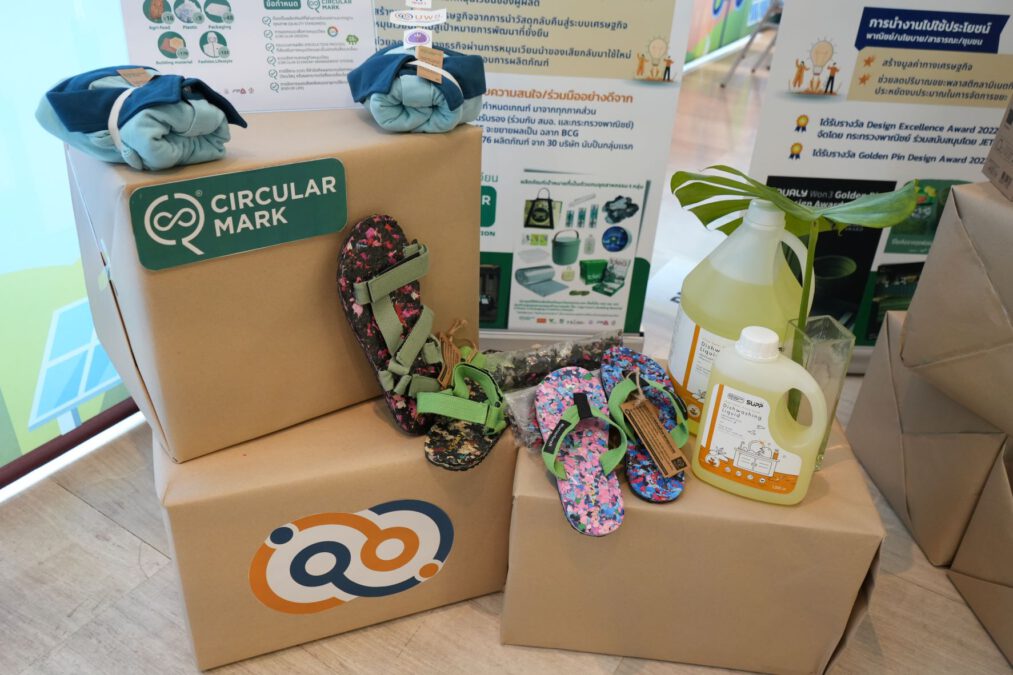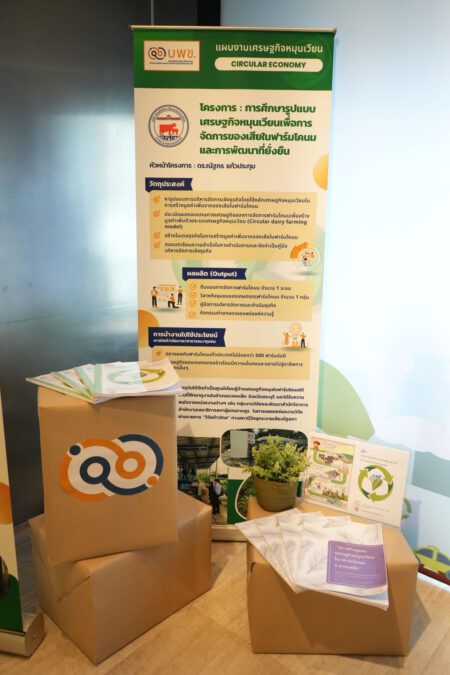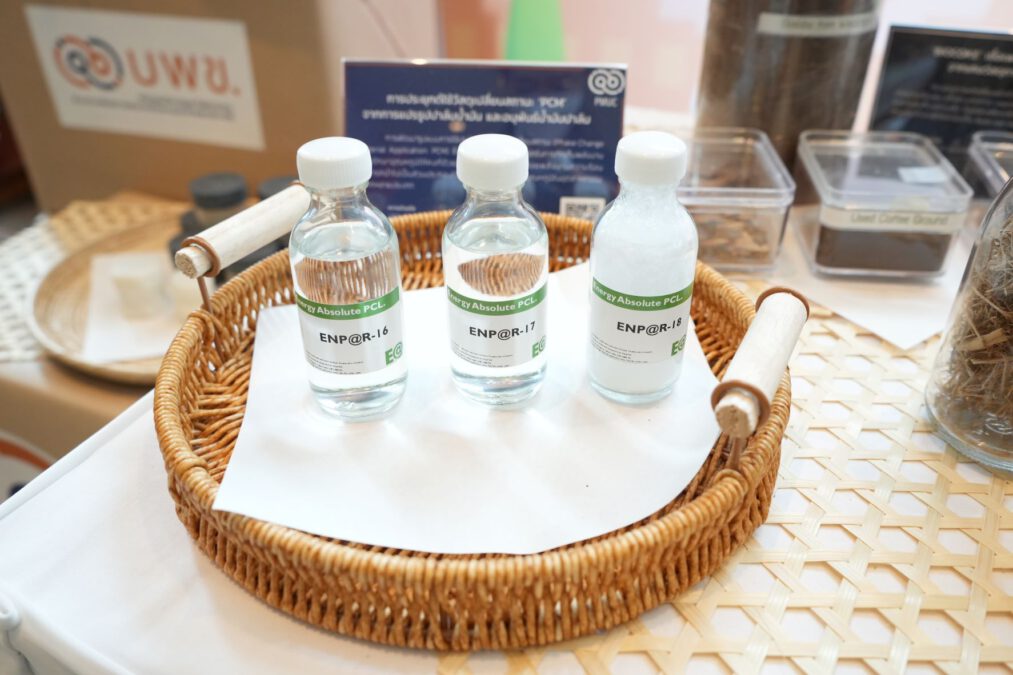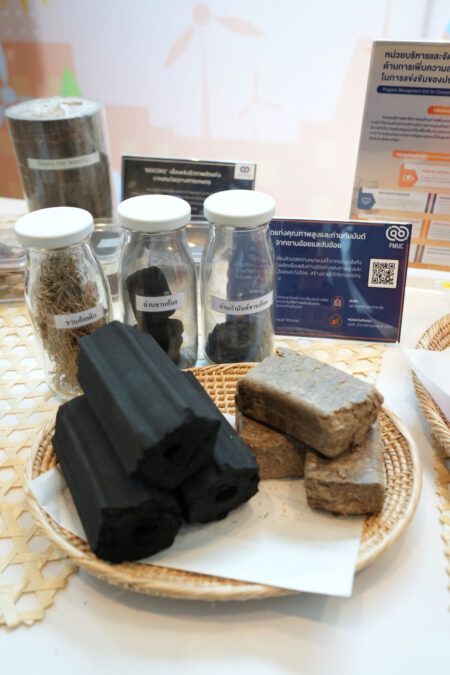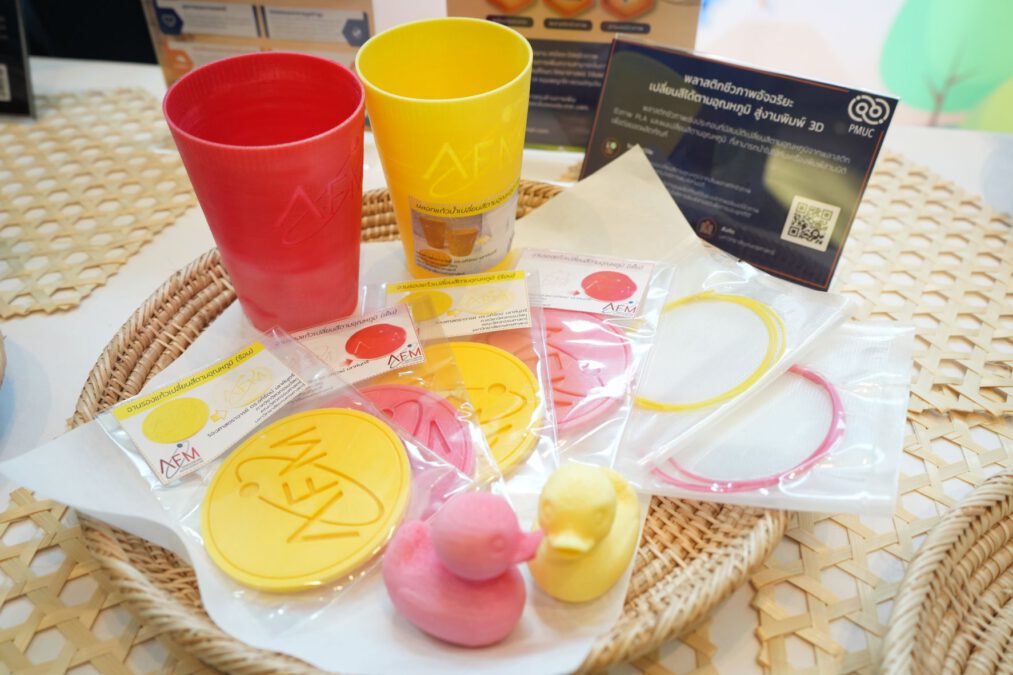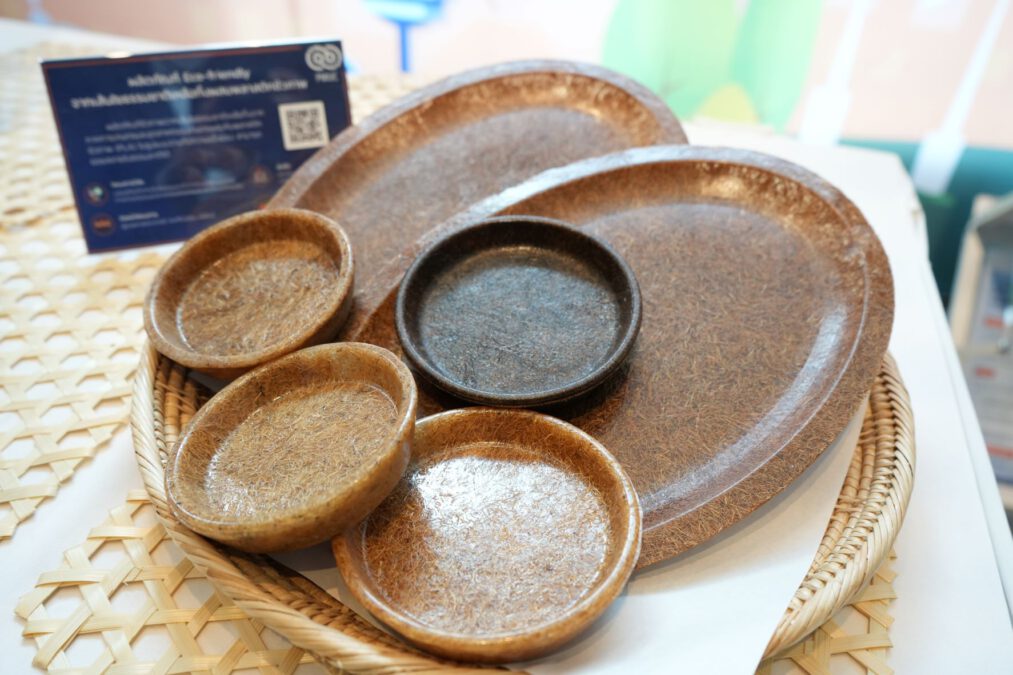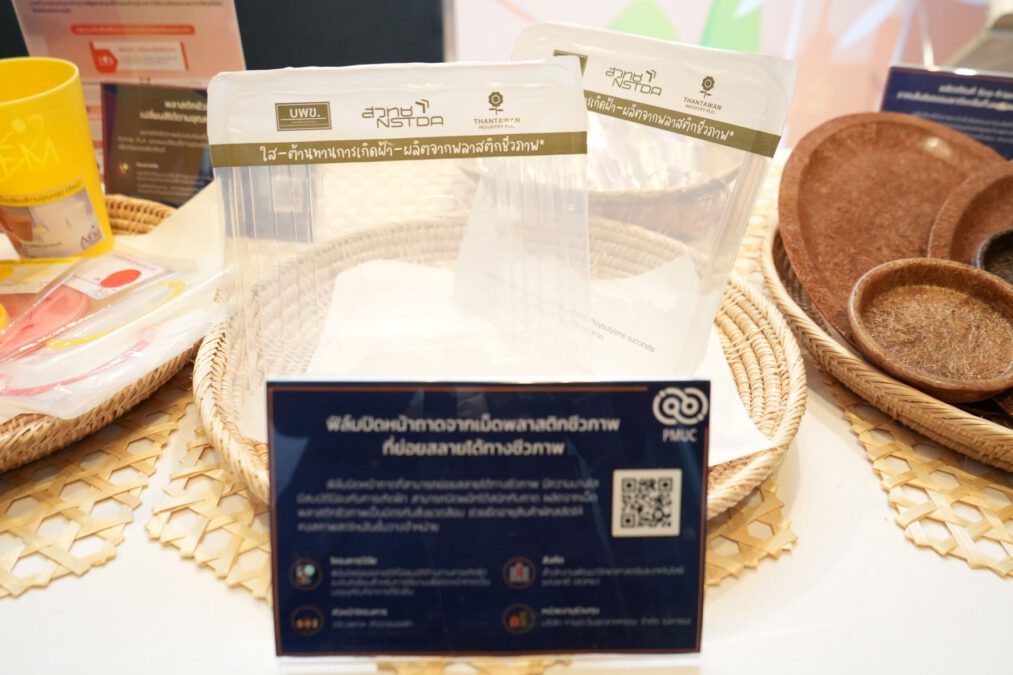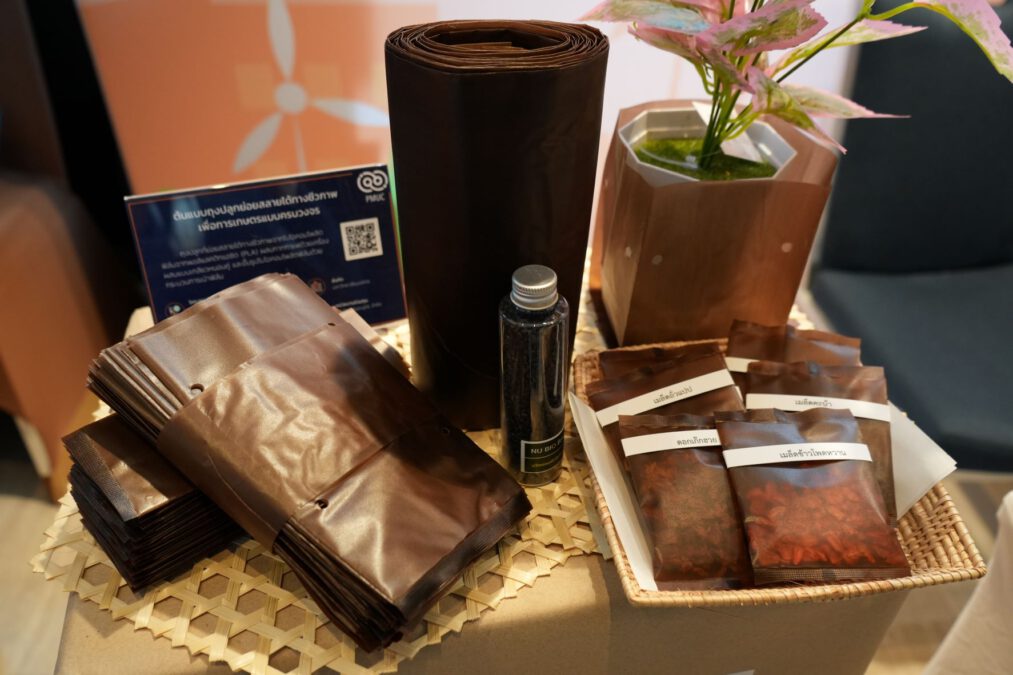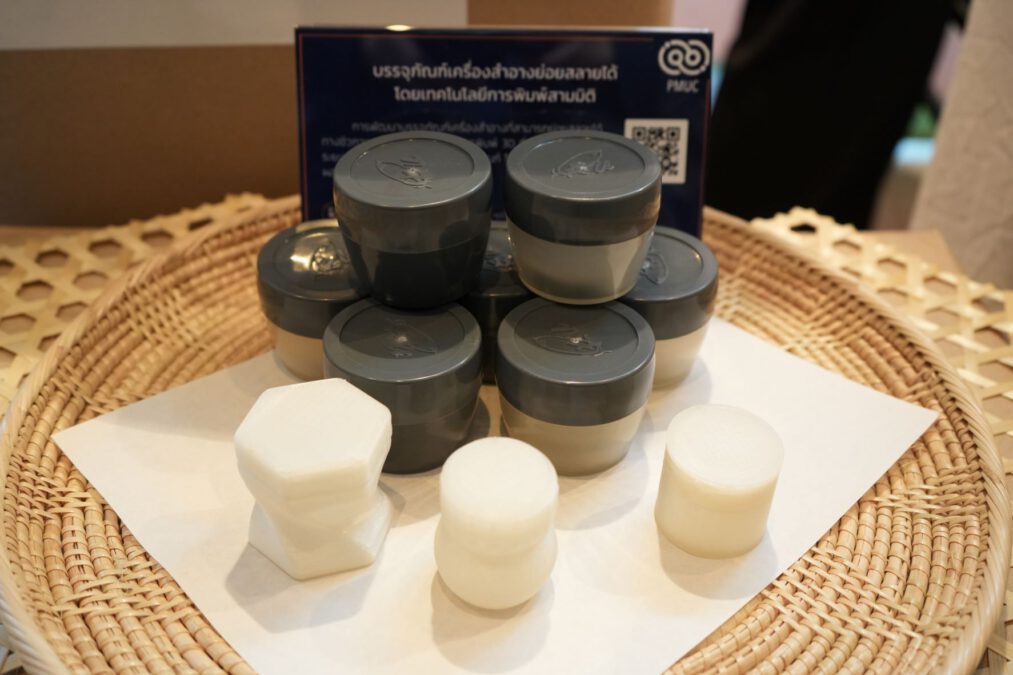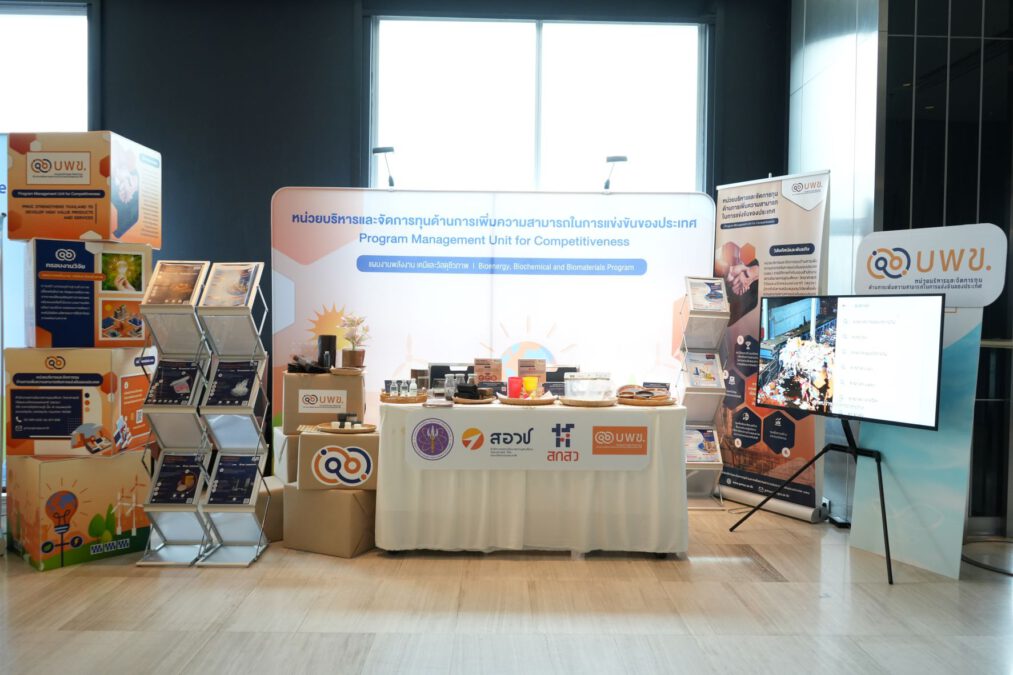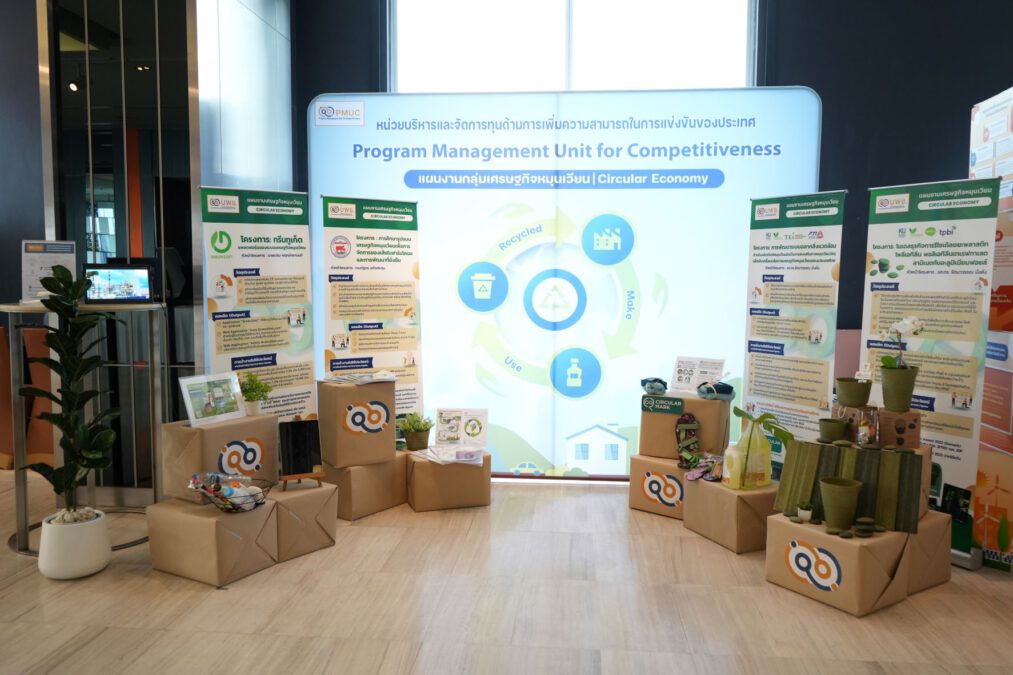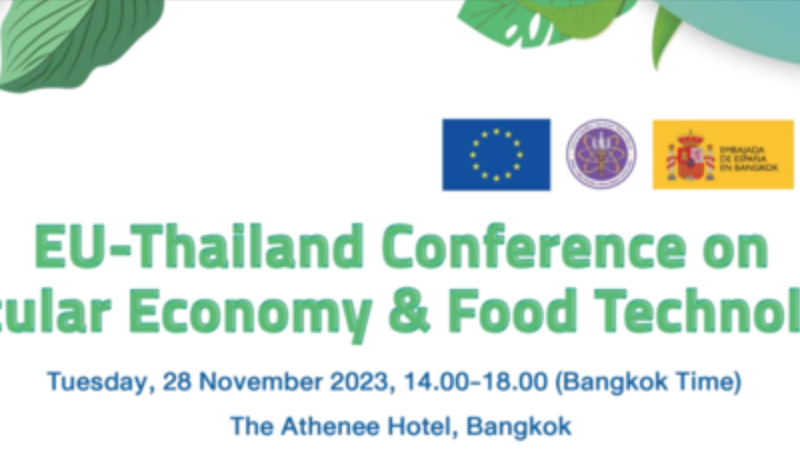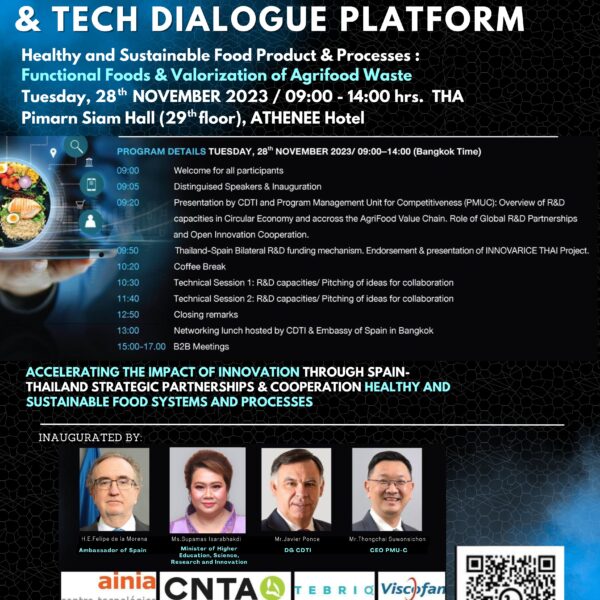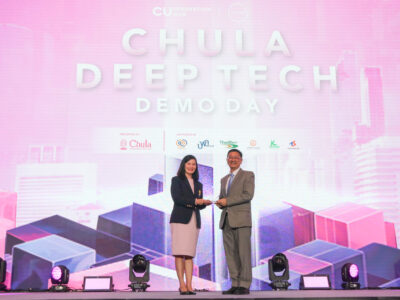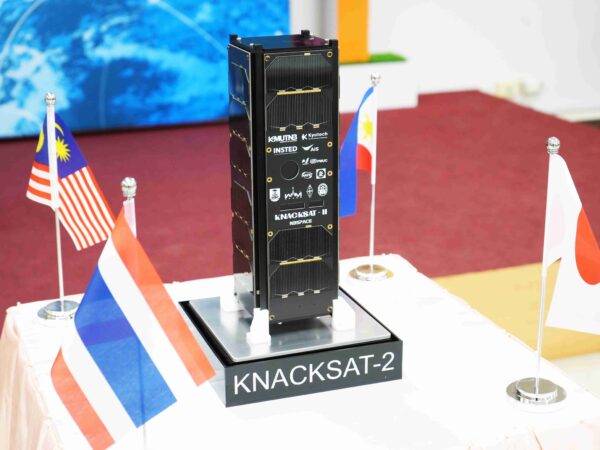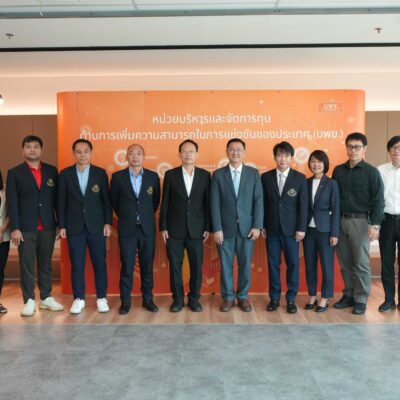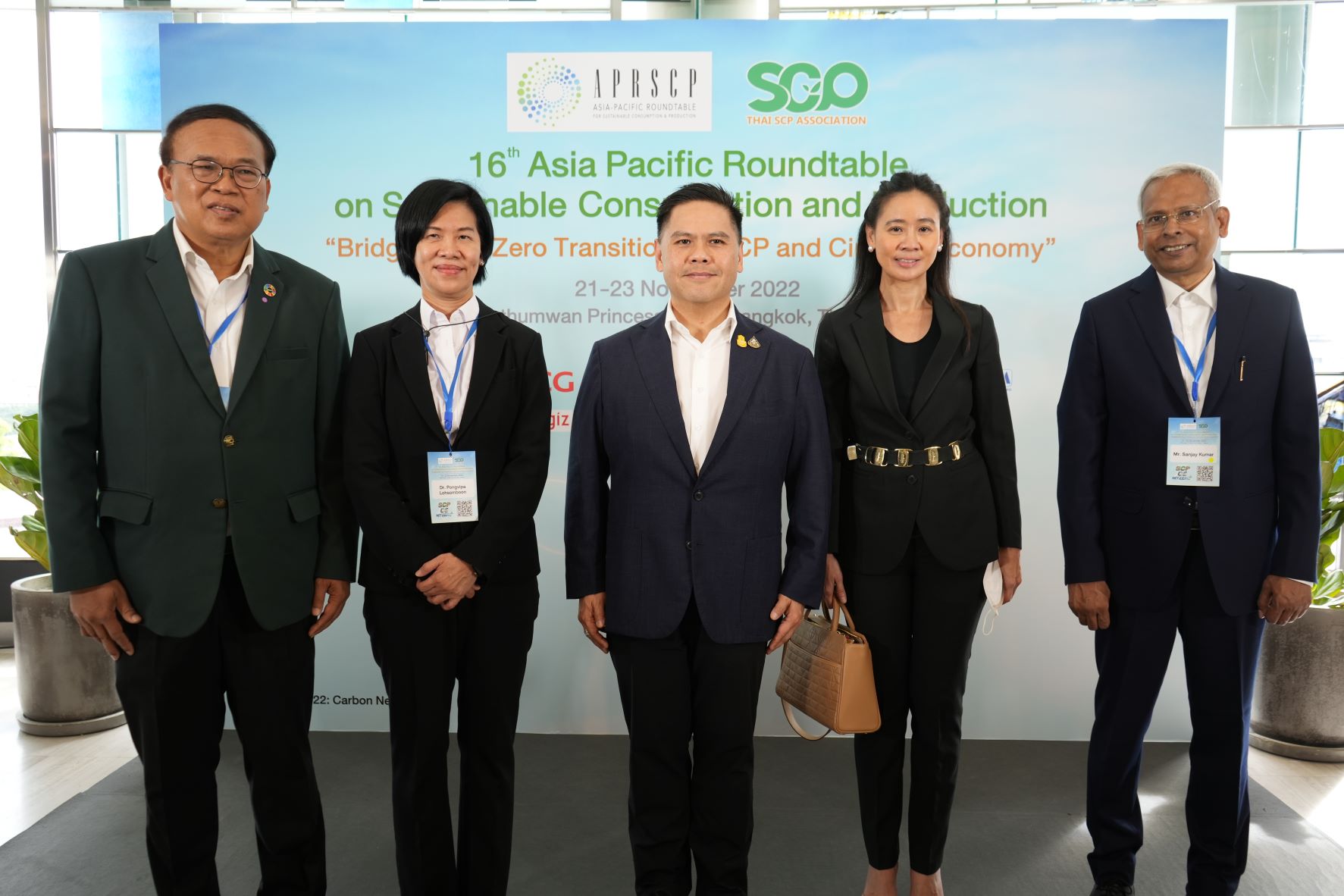
The Program Management Unit for Competitiveness(PMUC) has jointly exhibited research that promotes the reduction of negative impact on the environment based on the Circular Economy Program and the Energy, Chemistry and Biological Materials Program at the 16th Asia Pacific Roundtable on Sustainable Consumtion and Production (16th APRSCP) academic conference on 21 – 23 Nov. 2022 at Pathumwan Princess Hotel, Bangkok, with Mr. Warawut Silpaarcha, Minister of Natural Resources and Environment gave the opening remarks and keynote address.
At the event there are experts, researchers, academics and relevant people from international organizations, as well as the government, private sector and representatives from civil society, participating and sharing knowledge and experience with more than 300 people from Asia-Pacific countries. (Both in the meeting room and online). The APRSCP conference, which has been held continuously, with this marking the 16th time and celebrating the 25th anniversary since the initial establishment in Thailand in 1997. It was therefore an important conference that responds to the global challenges of establishing sustainable production and consumption and a circular economy, ultimately achieving net zero greenhouse gas emissions.
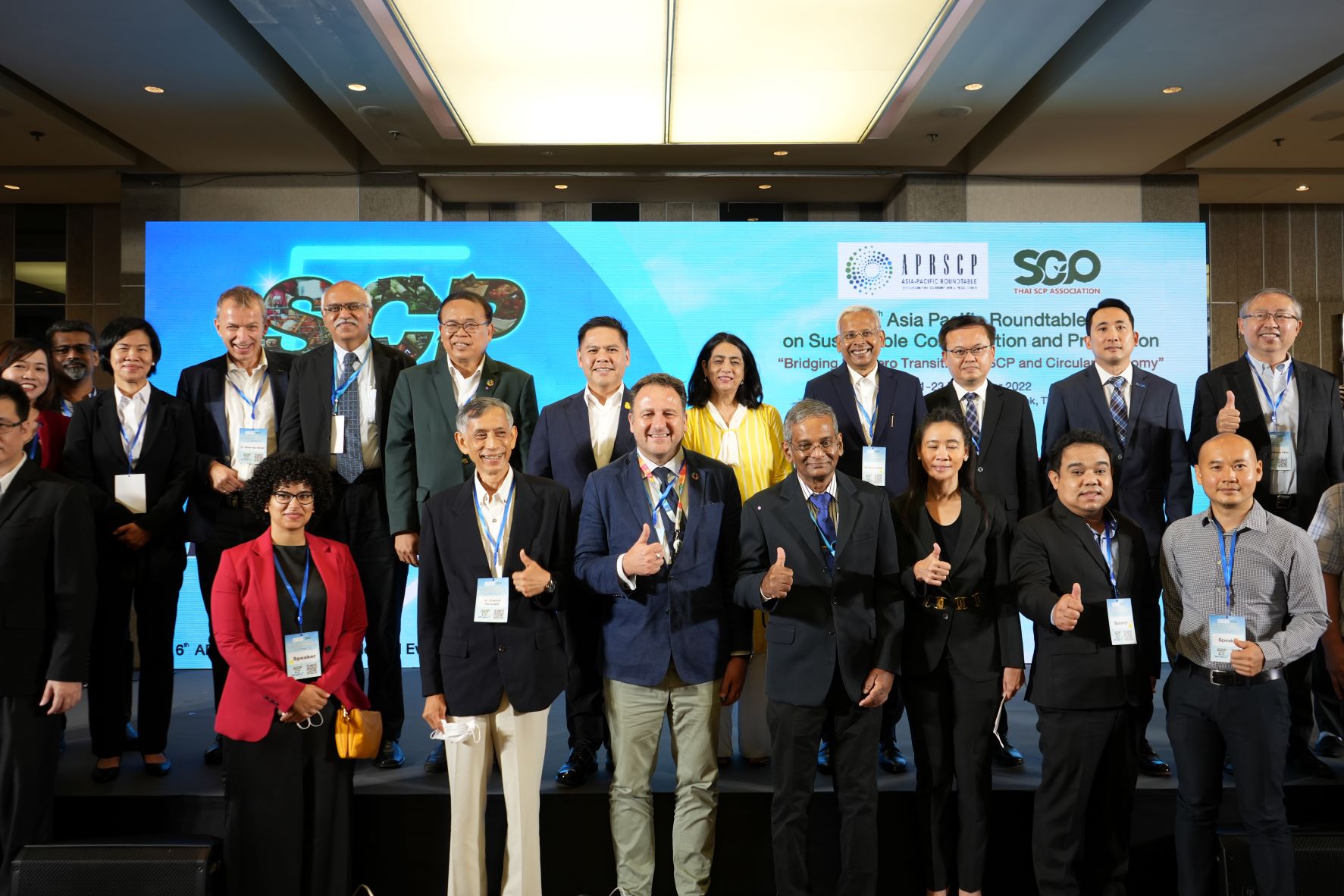
On this occasion, Dr. Pongwipha Lorsomboon, chairman of the Subcommittee of the Circular Economy Program, PMUC, a high-level expert at the Office of the Science, Research and Innovation (TSRI), and also acting as the secretary-general and a committee member of the Thai SCP Network, and also as a committee member and the secretary-general of the Thai SCP Association, expressed intentions in pushing forward the reduction of negative environmental impact, saying that, “In the past, the PMUC has focused on sustainable growth especially concerning the environment. So far, we have funded more than a hundred research projects to drive the transition to a low-carbon society. We have integrated and coordinated between various programs within the PMUC, whether it is the integration between circular economy programs with the Energy, Chemistry and Biological Materials Program, or the Tourism and Creative Economy Program, the Digital Platform Program, etc. We have also worked with other relevant agencies, including the public, private and civil society sectors to lay the cornerstone of the infrastructure system, standards assessment and inspection, all of which will help push the Thai business sector to be able to compete with the global market by doing business that is environmentally friendly. This also helps to accelerate the push to bring research results into real use and drive the work of various sectors in line with the country’s direction to achieve carbon neutrality by 2050, and achieve net zero emissions by the year 2065.”
While Dr. Vijarn Simachaya, member of the Circular Economy Subcommittee, PMUC and chairman of the Thai SCP Network, chairing the committee which organized this even, said that “Sustainable production and consumption (SCP) together with the idea of a circular economy (CE) are both international approaches, as well as implementation of changes leading to reduction of global greenhouse gases. The aim is to achieve net zero greenhouse gas emissions as well as a low-carbon society and sustainable growth. Therefore, with the awareness and participation of all sectors especially in the Asia-Pacific region, it is time to work together to solve problems that threaten the sustainability of natural ecosystems and habitats, by utilizing various measures such as reviewing production and consumption behaviors through effective policies and tangible implementation of such policies.”
At this 16th APRSCP academic conference, the PMUC presented research results that received research funding from the PMUC to push and drive the country’s BCG (Bio-Circular-Green Economy : BCG Model) policy under the Circular Economy Program and the Energy, Chemistry and Biological Materials Program, which received much attention from a large number of participants.
In organizing the event, the organizer was able to effectively offset the total amount of greenhouse gas emissions generated by the event, and therefore, the event can be regarded as having zero greenhouse gas emissions or a “carbon neutral event” using carbon credits under the “voluntary greenhouse gas reduction project according to Thailand standards” (or T- VER). This was done in order to demonstrate social responsibility, to help reduce greenhouse gas emissions as a whole for the country and the world.
